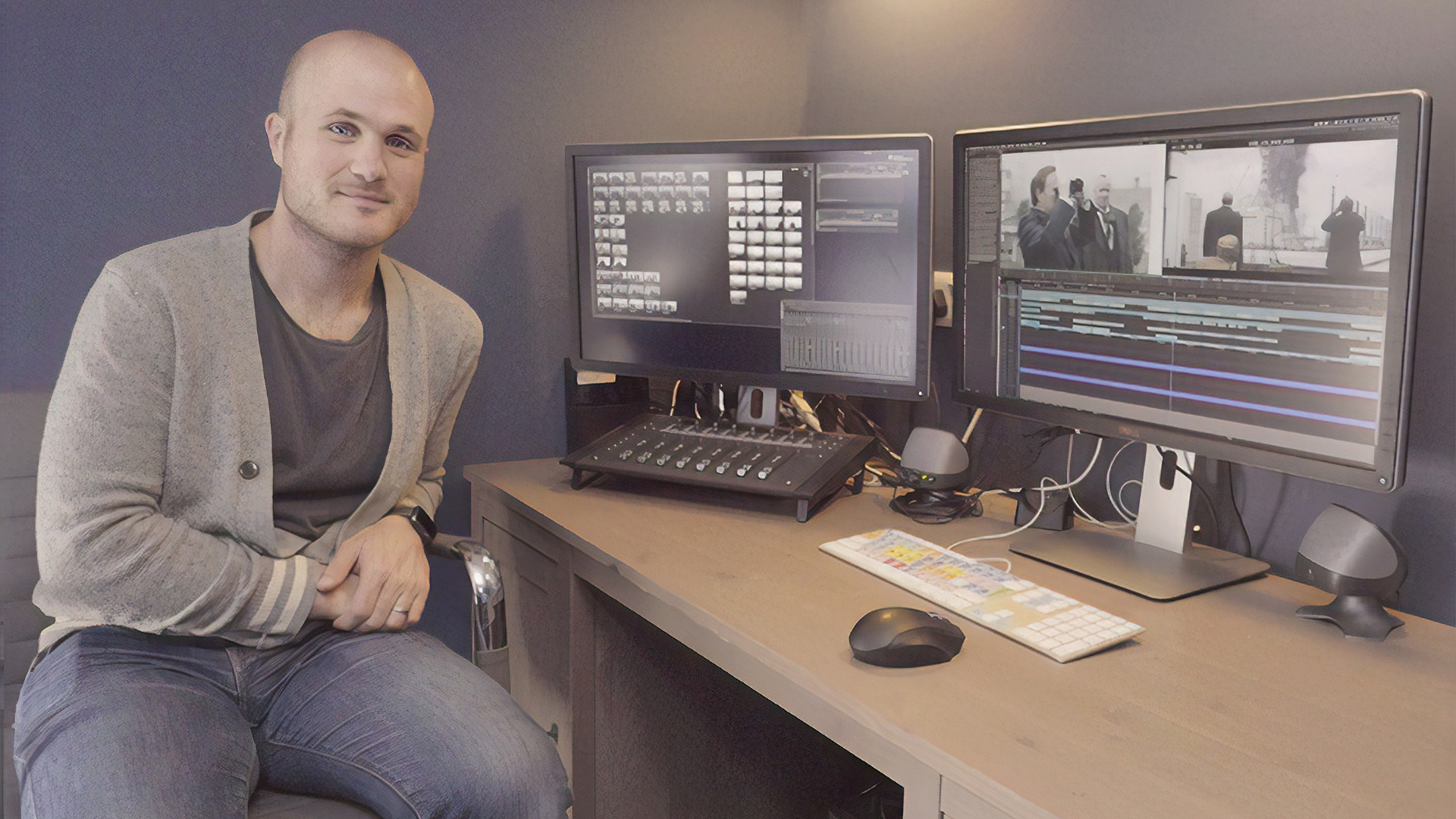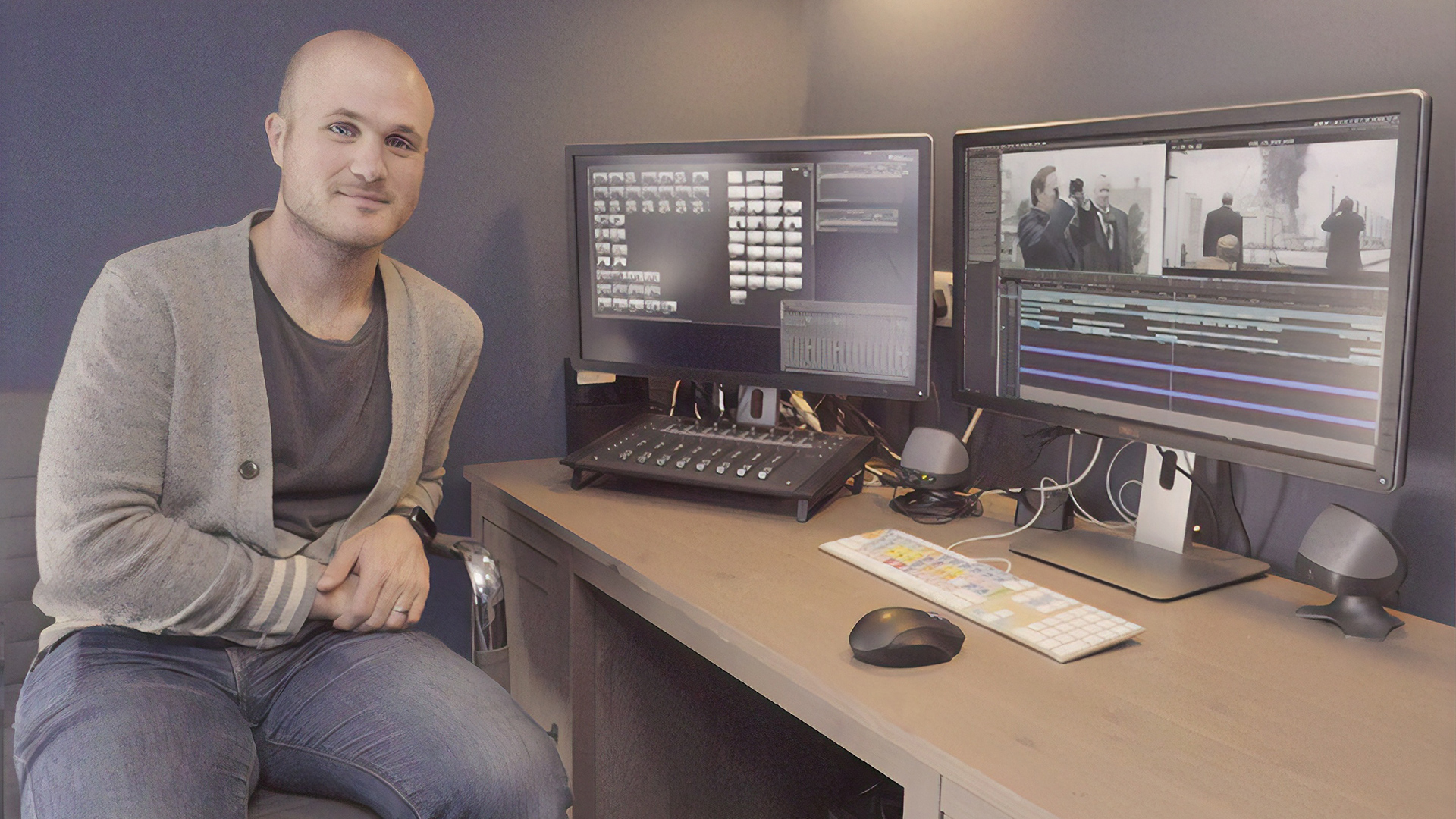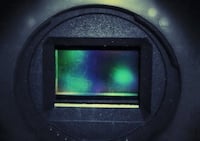

Emmy Award Winning Editor Simon Smith discusses his workflow on Chernobyl and how it’s enabled working from home.
In terms of workflow with Cherobyl, how did that work?
We shot on location in Lithuania there was a team out there who would get the rushes and they would transcode those to DNX HD 36 and they would send those to us over the internet to our assistants and then that would go into the Avid so it actually in terms of what I’m used to receiving its dead simple.
We would get stuff the day after they shot it and we would be editing with it by the afternoon that day. They would shoot with three cameras quite a lot. The director Johan Renck was a master at blocking out and shooting with three cameras in a way that it didn’t look like it was just a multi-cam shoot, each of the cameras felt designed and felt deliberate but he was able to do things three times quicker because he could do three at once.
Them at the back end after I finished they conformed at 2K and did their FX at 2K but then they made a 4K HDR Master, that only HBO will have in their vaults. The aspect ratio we delivered was 2:1, but we had to get HBO on side, we have to convince them, they had always wanted 16:9. I know it sounds silly but we tried to get 2.1:1 but the agreement was 2:1. Workflow was dead easy straight into my Avid. I had three assistants, another editor and a visual effects editor connected to the project as well.
What was the shooting ratio like?
Because it was three cameras it was a lot but as an editor I would view three cameras at once so the amount of rushes I was watching each day was still only about 2 hours a day so wasn’t a lot we had a hundred shoot days which is 20 weeks and that was split between the five episodes of more or less equal shooting ratio and it did not feel like a lot but when I look at the drives, and doing another project now and we’re looking at about 600 gigabytes of DNX HD 36 per episode, Chernobyl was about 2000 per episode so what we collected was about three times as much, you could put that down to three cameras. You could put it down to the vastness and the richness of the montage scenes up.
The thing I’m working on now is mainly single camera, and it’s funny because you can measure how big your project is by how many drives you store the material on and Chernobyl always needed a 10TB by drive to store the proxy files on.
Your routine when watching the material is a little different though wasn’t it?
We have dailies, what they shot the day before is what I will edit and I have to keep up because every day we'll get more things coming through. The first thing that I like to do in the morning, that gets my brain going and gets me in the right state to sit and edit, is to watch the dailies and this is an old practice, years ago the director and the editor and everyone would have watched the dailies near to the set together on a projector. So I start my day with a cup of coffee, my notebook, my report sheets from the night before and I project the dailies from the day before on my home Cinema setup with a 100” screen. That's usually about two hours of watching every single take that filmed the day before and I make notes on every take, I really try and take it in and it's funny how that then it sits itself in your brain, because you've watched it in that way.
Going forward then in three months time when the director asks me. Could we do this or have we got this? I've can show him as I’ve watched every frame. I watch it in a more relaxed environment but it’s almost like sensory overload, I don't watch it on a small monitor and spin through it or jump through it. It comes back to mind much quicker, I watch it in the way that we want it to eventually be delivered.
Did you do anything differently with this series?
One thing about this production which was very different from other things that I’d worked on was just how International it was. We had the director who was based in New York, the writer and executive Producer who were in L.A., we also had executive producers in London. Then when they were shooting they were all in Lithuania. So we were across all sorts of time zones and then there's the edit which was happening in London. So we had to find a way of managing all that and we had a new piece of software called Evercast which we used, it was built by editors. One of the key development team and members of the company is Roger Barton and he's edited Terminator films and Pirates of the Caribbean films and he worked on Titanic.
The aim of this software is for international or remote collaboration.
It's amazing, you open up your Chrome browser, so on Chrome everyone screen shares what you're doing on the Avid to their browser, it feels like it's real time. You can press play and they can watch it, they can hear what you’re editing and they can see the timeline, my viewing monitor, my bins with all my options and how the sound is working. They can also see a webcam so they can see me they can talk to me and the aim of it was to allow your collaborators to feel like they're in the room, and the writer was really the driving force on this. He said I really want to feel like I'm in the edit suite but I can't be.
So, how can we best simulate being in the edit suite and with this chrome set up as well? You can even open on multiple monitors a different Chrome browsers on each monitor and have different screens. We did collaborative sessions with the composer as well who was in Berlin and she would talk about the music to the sound team and they would talk about what sound effects they wanted.
Roger works a lot with Disney works a lot with HBO. So he's had to start this from a point of view of what do you guys need me to satisfy the security? To allow this to work because they won't let you other tools which haven't been designed with that in mind. That was the biggest new technology thing that we used and because there's no real physical box, it seems a bit of a strange one, but there is a physical box probably in a data centre somewhere that's doing a lot of the work.
What about working away from the office?
One of the things that Evercast also allows now is working from home. That's something that I'm now trying to do with my home setup. So allowing me to work at home, but still collaborate through my edit system around the world to my directors my writers and so on is a game changer. Here in Brighton, England I get 90 Megabits per second down on Virgin fibre and that's good enough for what I need to do. I have to download the rushes at home and say they shoot 30 to 40 gigabytes a day of the proxy files I can get that at home down my Virgin Connection in about three hours. Usually I get up at 7:00, check that it's downloading, get the kids off to school and by the time I'm ready at 09:30 to start working. It's ready for me. It's amazing to be able to work from home in that way.
Sometimes working from home is quite challenging, what’s your experience?
I get so much more work done working at home, it's funny when I go into the office and I see my productivity level, it’s less. I feel that editing can be a very singular pursuit, when you're trying to focus on something in the office; you have everyone else pulling at you for what they want from you. So actually for me being at home is way better. It means that I can still do the school run. I can help out with bath time and bed time, but on the understanding that I when I need to work we're all on board with that.
I don't like the amount of people in film and TV whose family and relationships have suffered because of their working practices this now that fixes a lot of those problems for me.
Tags: Post & VFX


Comments